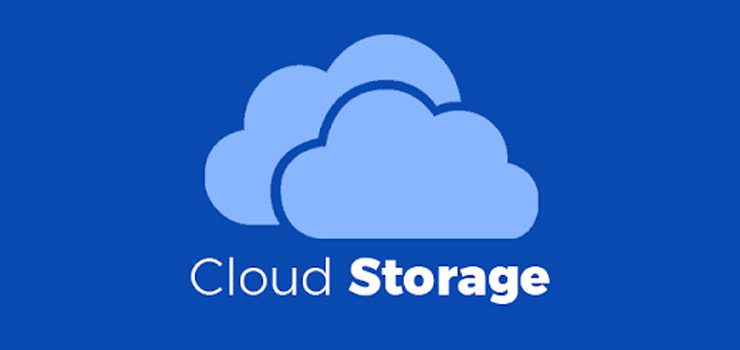Transform Your IT Facilities With Universal Cloud Solutions
In today's rapidly progressing electronic landscape, the change towards universal cloud services has actually ended up being a critical imperative for organizations seeking to boost their IT framework. The ability to streamline operations, improve scalability, and increase general effectiveness through cloud migration is undeniable. The actual inquiry exists in exactly how these solutions can be customized to attend to the special requirements and difficulties dealt with by different businesses. By exploring the nuanced methods which global cloud solutions can be personalized and integrated, organizations can truly open their complete capacity in achieving digital makeover and affordable advantage on the market.
Benefits of Universal Cloud Provider
Accepting universal cloud solutions uses companies a myriad of benefits that streamline procedures and enhance scalability in today's vibrant electronic landscape. One essential advantage is cost-efficiency, as cloud services remove the need for ahead of time investments in equipment and infrastructure. This pay-as-you-go design permits companies to range resources up or down based on their demands, optimizing costs and lowering overall IT expenses. Additionally, cloud services supply adaptability and ease of access, making it possible for employees to gain access to data and applications from anywhere with a web link. This not only enhances partnership and performance but likewise sustains remote job arrangements, which have ended up being significantly prevalent in the modern company globe.
In addition, universal cloud solutions use improved safety steps, with data file encryption, regular back-ups, and built-in calamity recovery devices. In general, embracing global cloud solutions can lead to increased effectiveness, dexterity, and competition for businesses in today's electronic age.
Migration to Cloud Facilities
Businesses significantly acknowledge the critical imperative of transitioning their IT facilities to cloud-based remedies. Migrating to shadow infrastructure offers countless benefits, including scalability, cost-efficiency, and raised agility. One of the key reasons business decide for cloud movement is the ability to range sources up or down based on varying needs, making certain optimal efficiency without overprovisioning. Cloud solutions remove the demand for significant upfront investments in physical hardware, minimizing resources expenses and permitting companies to pay only for the resources they use.
One more advantage of migrating to cloud infrastructure is the enhanced agility it provides. Cloud systems use quick implementation of solutions and applications, enabling businesses to adjust promptly to market adjustments and remain ahead of competitors. Additionally, the cloud promotes remote accessibility to data and applications, fostering cooperation amongst geographically distributed teams.
Enhancing Data Protection Actions

One essential element of improving data safety is executing multi-factor verification (MFA) to add an added layer of security past passwords. MFA needs customers to supply two or even more verification aspects, such as a password and an unique code sent out to their mobile phone, prior to accessing sensitive information. This considerably reduces check this site out the danger of unapproved gain access to, also if passwords are compromised.
Moreover, organizations must routinely carry out security audits and vulnerability analyses to recognize and deal with possible weak points in their data safety framework - linkdaddy universal cloud storage press release. By staying positive and continually boosting data safety actions, organizations can efficiently alleviate threats and safeguard their important info properties in a significantly digital world
Executing Cloud-Based Applications
In adjusting to modern-day technical advancements, organizations are increasingly leveraging cloud-based applications to enhance their procedures and improve efficiency. Cloud-based applications supply a series of benefits, including versatility, scalability, and cost-effectiveness. By executing cloud-based applications, services can enhance procedures, enhance partnership among teams, and enhance overall productivity.

Additionally, executing cloud-based applications can result in better data monitoring and protection. These applications typically have built-in protection attributes and use data encryption to protect delicate details. This can assist organizations abide by information security policies and mitigate the threat of information breaches. Overall, taking on cloud-based applications can reinvent how businesses run, driving development and competitiveness in today's electronic landscape.
Maximizing Cost-Efficiency
To achieve optimum cost-efficiency in leveraging cloud-based applications, organizations have to tactically review their resource appropriation and usage. One vital method for making the most of cost-efficiency is to take on a pay-as-you-go model, where companies only pay for the solutions and sources they use. This versatility permits for cost financial savings by removing the need to spend in pricey infrastructure that might not be totally utilized.

Routine tracking and optimization of cloud sources are essential for determining locations where cost-savings can be achieved. By evaluating use patterns and performance metrics, companies can make enlightened decisions about resource allowance and more simplify their procedures to make the most of cost-efficiency in the cloud.
Final Thought
In conclusion, global cloud solutions provide numerous advantages such as cost-efficiency, versatility, enhanced security actions, and automated updates. Moving to cloud framework allows organizations to utilize cost-efficiency, scalability, and agility to stay affordable.
Furthermore, cloud solutions offer adaptability and ease of access, making it possible for employees to access information and applications from anywhere with a net link.Additionally, global cloud services use improved safety actions, with data security, normal backups, and built-in catastrophe recuperation mechanisms. Cloud systems offer rapid implementation of solutions and applications, allowing organizations to adjust rapidly to market modifications and remain in advance of rivals. Additionally, the cloud helps with remote accessibility to applications and information, visit site fostering collaboration among geographically distributed groups.
In verdict, global cloud services offer various benefits such as cost-efficiency, versatility, improved protection actions, and automated updates.